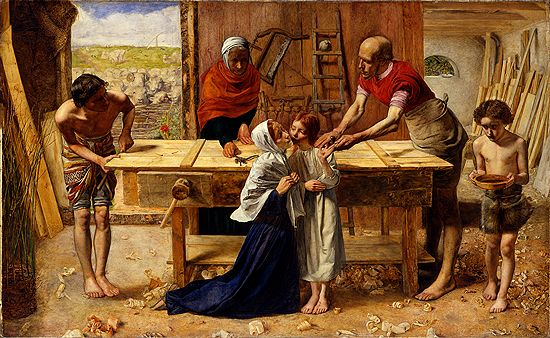 Today let us read a story from 'The Merry Mischief of Gopal Bhand' which is quite long but has the equally deep moral that is timeless or if I can say more and more truer for newer times and modern life style. I will appreciate if you will read it through till the end and, believe me you will not regret what you did...!
Today let us read a story from 'The Merry Mischief of Gopal Bhand' which is quite long but has the equally deep moral that is timeless or if I can say more and more truer for newer times and modern life style. I will appreciate if you will read it through till the end and, believe me you will not regret what you did...!
Long ago Maharaja Krishna Chandra reigned in Bengal. He had
several jesters in his court. The most popular one among them was Gopal. He was
a barber by profession. Everyone called him Gopal Bhand. 'Bhand’ means a buffoon,
someone who can make people laugh. Gopal’s jokes and actions, his unexpected
comments and the way he made a fool of everybody, including the Maharaja
himself, made him very popular.
No one could get the better of him. Or play tricks on him. Gopal always
managed to see through them and turn the tables very cleverly. Most people in
those days believed in several strange superstitions, simply because they did
not know any better and it was not an age of scientific reasoning.
The Maharaja believed—like many others—that the person whose face
he saw first on waking up affected his fate for the rest of the day. If his day
passed smoothly, the person concerned was ‘auspicious’. So he would reward him
the next morning. And if anything untoward happened, the person was definitely
`inauspicious’ and a danger to the royalty! So the Maharaja would punish him
the next day. The greater the calamity the more severe the punishment!
Everyone in the kingdom knew about the Maharaja’s belief and tried
to keep out of his way, first thing every morning. It could be fun to get an
unexpected reward—which could be a bag of gold coins or a piece of land or a
cow of good breed. But it could very well lead to punishment too—from blows to
banishment! So few people cared to risk it.
Gopal was not afraid of the Maharaja or his whims. He was not even
afraid of being punished, as he knew that he was clever enough to deal with
whatever came his way.
However, the people the Maharaja usually saw on waking up each day
were his personal attendants, the royal bodyguards or the queen. There was
little chance of strangers coming into the palace at that early hour. Unless,
it was the Chief Minister coming to warn him about something important which
needed his attention. In such situations, he forgot all about rewards or
punishments, anyway.
There were times when the Maharaja woke up early and went for a
walk by himself without waking up anyone. It could be within the royal orchard
or garden. It could be by the riverside. Or it could even be in the market
place. That was when there was a chance that he might bump into just anybody.
The person he saw first waited with bated breath, wondering what the Maharaja’s
day had been like, and whether it was going to bring him a reward or
punishment.
One morning, the Maharaja went for a walk by the riverside. It was
early and the shore was deserted.
Gopal, who usually slept till late, woke up quite early that
morning because he felt unusually hungry. He felt a sudden craving for fresh
fish and decided to go to the riverside and buy some from the fishermen. He
knew that most of them went fishing very early and returned about that time
with their haul.
Strangely, Gopal did not find a single fisherman there. He saw
Maharaja Krishna-Chandra walking by the river.
The Maharaja saw him too. “Hello, Gopal!” he said in surprise,
“I thought you always slept late and crawled out of bed with the
mid-day sun.”
“Good morning, Your Majesty,” said Gopal. “Yes, I do get up late
as a rule. I had a strange desire to test my fate this morning so I rushed to
the riverside.”
“I don’t understand you,” said the Maharaja. “How can you test
your fate here?”
“I knew I would meet you before anyone else,” said Gopal glibly.
“How could you possibly know that?” asked the Maharaja, surprised.
“One does sometimes, like a flash,” said Gopal. “I cannot explain
it. Anyway, I am sure I shall have a wonderful day, having seen your auspicious
face before anyone else’s.”
“I am sure you will,” said the Maharaja, delighted.
They walked towards the palace together. It was not considered
unusual for the king and a commoner to walk together in those days. No one
thought it strange. The king had the right to behave as he chose and mix with
anyone he thought fit and go wherever he wanted to. Nor did people think that a
king must ride a. carriage at all times and be accompanied by a troop of
bodyguards no matter where he went.
“By the way, Gopal, I hope you realize that you are the first
person whose face I have seen today,” said the Maharaja. “Let me see how my day
goes. Only then I shall know whether you are auspicious or not. Accordingly I
shall reward or punish.you.”
“Of course, Your Majesty,” said Gopal politely. “It is just a
question of who is more auspicious, you or I.”
“What on earth do you mean?” asked the Maharaja frowning. “It
seems rather a cheeky thing to say.”
“I am only a jester, sir,” said Gopal with folded hands. “A
jester’s words should not be taken too seriously.”
They reached the palace before long. The Maharaja invited Gopal to
come in and sit in his chamber for a while. Gopal was so full of jokes—he
always made people feel cheerful. Specially the Maharaja. As they sat down, the
royal barber arrived.
“I must shave your face, Your Majesty,” said the barber, thankful
that he was not the first person to confront the Maharaja that day.
“Very well,” said the Maharaja. “You may do it now. Gopal, why
don’t you tell me what happened at the marriage party you went to attend last
night?”
Gopal started his tale in his usual exaggerated style, making
everything sound like a joke. Before long the Maharaja was in splits of
laughter. The barber was laughing too. So was everyone else in the room
including the royal guards and the attendants. As the Maharaja shook with
laughter at Gopal’s jokes, the barber’s hand slipped. The razor got embedded in
the Maharaja’s cheek making him bleed profusely. The barber shook with terror.
He was quite sure that the Maharaja would order his execution. Or his lifetime
banishment from the kingdom! Making the king bleed was no light matter!
The royal attendants rushed to treat to the wound which soon
stopped bleeding. Everyone stood tense. All except Gopal. He continued to smile
as before. “Don’t smile, Gopal,” said the Maharaja, livid with anger. “I hope
you remember that you are the first person I saw this morning.”
“Yes. And you are the first person I saw in the morning, Your
Majesty!” replied Gopal.
“How does that matter?” asked the Maharaja irritably. “It is my
day that I am talking about. You are the most inauspicious man I ever saw. I
see your face first thing this morning and I come home and start bleeding! I am
wondering what punishment to give you.”
“Punishment, Your Majesty?” cried Gopal, pretending to look
astonished.
“Of course,” said the Maharaja, “I have never bled like this before. I think I shall command your execution. A man who is inauspicious enough to make the king bleed deserves to die.”
Gopal
threw up his hands. “That is not fair, Your Majesty.” “Why not?” asked the
Maharaja frowning.
“Because you are far more inauspicious than I am, Your Majesty,”
said Gopal.
“How dare you say such a thing!” cried the Maharaja. “You deserve
double execution for being so rude to royalty!”
“I dare to say it because it is true,” said Gopal stoutly.
“How?” shouted the Maharaja, curious in spite of his anger. “It is
perfectly obvious, Your Majesty,” said Gopal. “I am inauspicious. You see my
face first thing in the morning and get a simple wound. I see your face first
thing in the morning and get a death sentence! Do I really need to spell out
who is more inauspicious?”
The Maharaja was stunned into silence. Then he burst out laughing.
“You are quite right, Gopal. Mere bleeding is nothing compared to execution. I
suppose I must be more inauspicious! I see now that such considerations are
stupid and I thank you for pointing that out to me.”
“In that case, why not send for some rasagullas, Your Majesty?”
said Gopal. “I have eaten nothing since morning and I am starving.”
“Very well,” said Maharaja Krishna Chandra with a smile,
“rasagullas it shall be—as many as you can eat!”
The morning ended with everyone feasting on sweets.
Stay tuned and always speak the truth even if your voice shakes...!
 A Monarch of long ago had twin
sons. As they grew to young manhood, the king sought a fair way to designate
one of them as crown prince. All who knew the young men thought them equal in
intelligence, wit, personal charm, health, and physical strength. Being a
keenly observant king, he thought he detected a trait in one which was not
shared by the other.
A Monarch of long ago had twin
sons. As they grew to young manhood, the king sought a fair way to designate
one of them as crown prince. All who knew the young men thought them equal in
intelligence, wit, personal charm, health, and physical strength. Being a
keenly observant king, he thought he detected a trait in one which was not
shared by the other.




















